Learn the difference between “your” and “you’re” with examples. Enhance your English skills and speak fluently. Discover general English and other comprehensive courses at Oxford International English Schools.
Your and you’re is a simple one, once you’ve got the hang of it. These two words are homophones, meaning they sound the same, but are spelled differently and have different meanings. Luckily for us, this one is nice and easy.
Definitions and Examples of Your and You’re
Your is possessive, meaning that something belongs to you or the person you are speaking to. For example, “What is your name?” Or, “Are these your car keys?”
You’re is a combination of the words, you and are. This is called a contraction. So, whenever you see the word you’re, you can read it as you are and it will still make sense.
The most simple way to tell these two apart is to use them in a sentence. For example: Your dog is lovely. This makes perfect sense, but you’re (you are) dog is lovely, does not work. You’re is the words you are put together. You can use this to your advantage when testing if you’re using the right one.
Some Further Examples
- You’re really smart.
- The best way to prepare for tomorrow is to make sure you do your best today.
- Live your dreams.
- Can you post the parcel when you’re in London?
Think you know how use Your and You’re? Take this Quick Quiz
This is a brilliant way to test your new skills and knowledge. Don’t worry if it’s tricky, use the information in the article so far to help you out.
- That is not your/you’re toy.
- Do you want to show me your/you’re work?
- I love what you have done to your/you’re house.
- Your/you’re dress is really beautiful.
- If you want to know how you did, check out the answers at the end of the article.
- Your/you’re an amazing person!
- Take a break or your/you’re going to tire yourself out.
Top Tip for understanding the difference between your and you’re
The easiest way to remember which word to use is to remember that you’re is a contraction of the words you are.
You’re = you are. Keep this in your mind if you get a little stuck.
Whereas, your = belonging to a person.
Summary…
Once you’ve got the hang of the fact that you’re means you are, you should be good to go with this one. Remember that often homophones are tricky to learn and can take some time. Keep at it and eventually all will become clear. Practise makes perfect, so make sure you continue the good work. Happy learning!
Answers to the quiz
These are the answers to the quick quiz above. If you get stuck, have another quick read through the definitions and examples on the previous page and try again.
- That is not your toy.
- Do you want to show me your work?
- I love what you have done to your house.
- Your dress is really beautiful.
- You’re an amazing person!
- Take a break or you’re going to tire yourself out.
Discover the difference between “neither” and “either” with practical examples. Improve your English skills and speak more fluently with our comprehensive English courses at Oxford International English Schools.












